Welcome to the world of machined washers! If you're reading this, you're about to embark on a journey to discover the fundamental building blocks of precision engineering. Whether you're an engineer, a DIY enthusiast, or a professional seeking the perfect fastener for your project, this comprehensive guide will equip you with the knowledge to make informed decisions and take your projects to the next level.
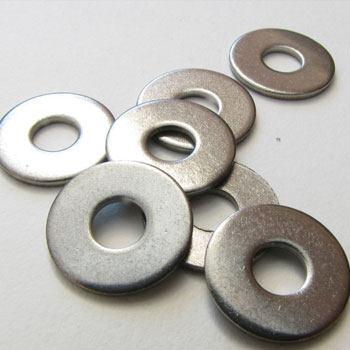
Machined washers are vital components in various industries, serving as essential elements in countless applications. But what exactly are they? In this section, we will break down the basics and explore their fundamental properties.
A machined washer is a flat, thin, and disc-shaped piece of hardware used to distribute the load of a fastener, such as a bolt or a screw, over a larger surface area. This simple yet ingenious design helps prevent damage to the material being fastened and ensures a more secure connection. Machined washers come in various shapes and sizes, each tailored to specific applications.
To help you better understand the different types of machined washers, here's a table summarizing their characteristics:
| Washer Type | Description | Common Use Cases |
|---|---|---|
| Flat Washers | Thin, flat discs with a central hole. | General purpose, load distribution. |
| Spring Washers | Circular with a waved or coiled shape. | Vibrating and high-stress applications. |
| Lock Washers | Often star-shaped with split ends. | Preventing fastener loosening. |
| Custom Washers | Tailored to specific dimensions and materials. | Unique project requirements. |
Get ready for a deep dive into the cutting-edge world of CNC machining technology. We'll uncover the advanced techniques that go into the creation of machined washers, including material selection, precision engineering, and the intricacies of CNC manufacturing.
CNC (Computer Numerical Control) machining is the heart of producing precision machined washers. This process involves using computer-controlled machinery to shape and cut raw materials into the desired washer shape and size. CNC machining offers unparalleled accuracy, enabling the production of washers with exact dimensions and flawless finishes.
Here's a table outlining the key steps in the CNC machining process for machined washers:
| CNC Machining Step | Description |
|---|---|
| CAD Design | Creation of a digital blueprint for the machined washer. |
| Material Preparation | Selecting the appropriate material and preparing it. |
| CNC Machining | Precise shaping of the washer using CNC machinery. |
| Quality Inspection | Thorough examination to ensure compliance with standards. |
| Finish and Coating | Applying surface finishes and coatings if required. |
| Packaging and Delivery | Preparing the finished washers for shipping to clients. |
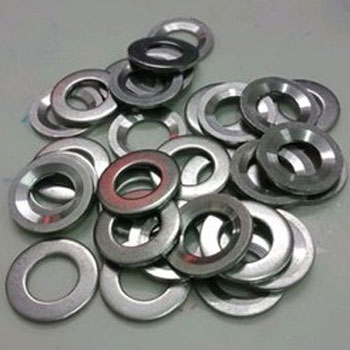
Flat washers, simple in design but multifaceted in application, play a crucial role in various projects. Learn about the different types, their uses, and why they are a must-have in your toolkit.
Flat washers are the unsung heroes of the fastener world. They are typically thin, flat discs with a central hole and are used to distribute the load of a fastener over a larger surface area. Here's a table summarizing the types of flat washers and their common use cases:
| Flat Washer Type | Description | Common Use Cases |
|---|---|---|
| Plain Flat Washers | Simple, flat, and smooth with no features. | General purpose, load distribution, and spacing. |
| Fender Washers | Larger outer diameter with a smaller hole. | Used in automotive applications and to reduce vibration. |
| Spherical Washers | Curved or conical shape for alignment. | Aligning parts and reducing angular misalignment. |
| Shim Washers | Very thin flat washers for precise spacing. | Adjustment of parts and achieving precise clearances. |
Usage Tip: When selecting flat washers, consider the material, size, and specific design features that best suit your project's requirements. Plain flat washers are versatile and widely used, while other types have specialized purposes.
Spring washers bring a new dimension to the game with their unique design. Discover how they work, where they are indispensable, and the scenarios that demand their inclusion.
Spring washers, also known as disc springs or Belleville washers, are distinctive due to their concave, conical, or wave-like shape. They store and release energy when compressed, making them ideal for applications that involve vibration, shock, or axial loads. Here's a table highlighting the common types of spring washers and their key applications:
| Spring Washer Type | Description | Common Use Cases |
|---|---|---|
| Belleville Washers | Cone-shaped, stacked for tension. | Heavy machinery, bolted joints, and structural connections. |
| Wave Washers | Wave-shaped with gaps. | Electrical contacts, dampening, and securing components. |
| Curved Spring Washers | Semicircular with varying curvature. | Axial load distribution and compensation for thermal expansion. |
Usage Tip: Spring washers are highly effective in maintaining tension in fasteners that may come loose due to vibration or thermal expansion. Choose the appropriate type and size for your specific application.
Lock washers step in to secure your connections with an extra layer of assurance. Find out how they work, when to use them, and how they bolster fastening mechanisms.
Lock washers are designed to prevent fasteners from loosening under load. They create tension between the fastener and the mating surface, offering enhanced security. Here's a table outlining common types of lock washers and their primary applications:
| Lock Washer Type | Description | Common Use Cases |
|---|---|---|
| Split Lock Washers | Splits on one side, creating tension. | General-purpose applications and easy installation. |
| Internal Tooth Lock Washers | Internal serrations for grip. | Electrical and automotive applications. |
| External Tooth Lock Washers | External serrations for grip. | Securing components and preventing rotation. |
| Star Washers | Radial "teeth" for anti-rotation. | Rotational prevention in electrical connections. |
Usage Tip: Lock washers are ideal for applications where vibration or torque could cause fasteners to come loose. Select the right lock washer type based on your project's specific requirements.
Sometimes, off-the-shelf options won't cut it. Delve into the world of custom machined washers and understand how they can be tailored to your specific needs. We'll also discuss the importance of flexibility in design and material selection.
While standard washers suit many applications, sometimes you require a solution that's as unique as your project. Custom machined washers offer the flexibility to meet your exact specifications, whether in terms of size, material, or design features. Here's a table that highlights the advantages and considerations for custom machined washers:
| Custom Washer Advantages | Considerations |
|---|---|
| Precise Dimensions | Material Selection |
| Unique Shapes and Features | Minimum Order Quantities |
| Enhanced Material Options | Lead Time for Production |
| Tailored for Specific Needs | Costs Depending on Complexity |
Usage Tip: When considering custom machined washers, collaborate with a trusted supplier like Richconn, who can guide you through the design and material selection process to ensure your washers meet your project's unique requirements.
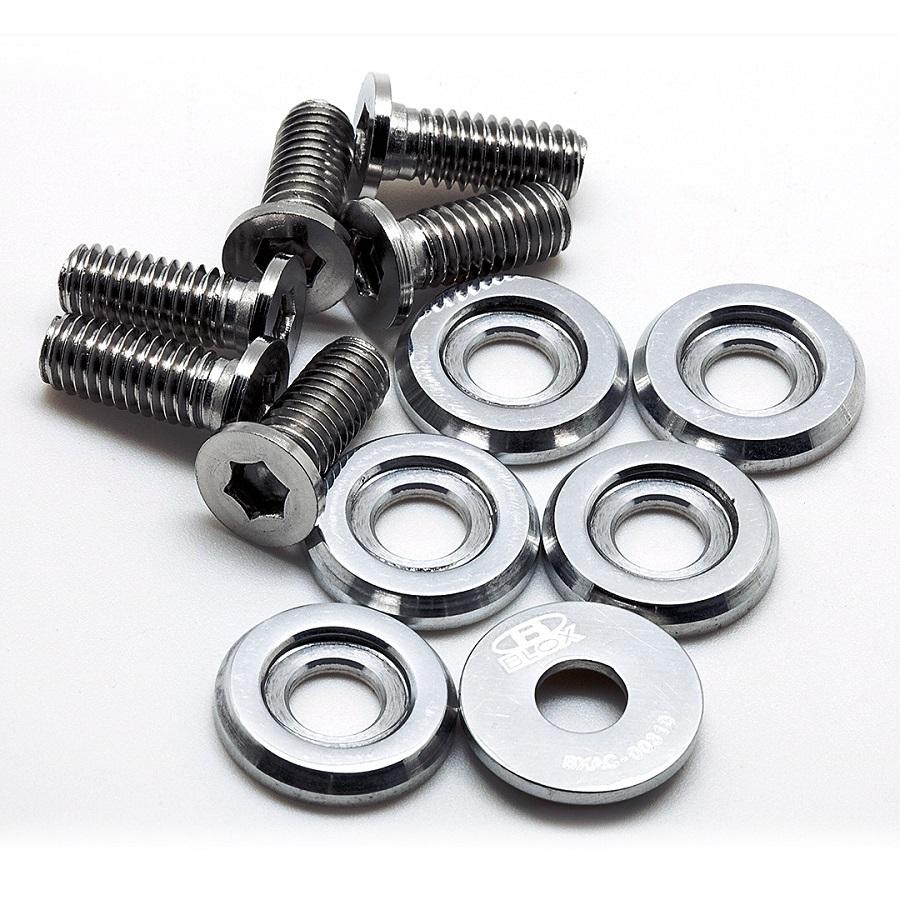
The choice of material can make or break the performance of your machined washers. We'll explore different materials and their impact on washer performance, helping you make informed decisions.
Selecting the right material for your machined washers is crucial, as it directly affects their performance and durability. Here, we delve into common materials used in machined washers and their suitability for various applications. Below is a table highlighting the properties of different washer materials:
| Washer Material | Properties | Suitable Applications |
|---|---|---|
| Steel | High strength, corrosion resistance, durability. | General-purpose, industrial, construction. |
| Stainless Steel | Excellent corrosion resistance, hygienic. | Food processing, marine, medical equipment. |
| Brass | Corrosion resistance, electrical conductivity. | Electrical components, decorative applications. |
| Aluminum | Lightweight, corrosion-resistant, non-magnetic. | Aerospace, automotive, electrical applications. |
| Nylon | Lightweight, non-corrosive, insulating properties. | Electrical, plumbing, low-load applications. |
| Plastic (PVC) | Chemical resistance, low-cost, electrical insulator. | Plumbing, electrical, non-load-bearing uses. |
Usage Tip: When choosing a material for your machined washers, consider factors such as the environment, load, and intended application. The right material can enhance the performance and lifespan of your fasteners.
Finding the perfect size and specifications for your machined washers is crucial. We'll guide you through the process of selecting the right dimensions to suit your project requirements.
Selecting the appropriate dimensions for your machined washers is essential to ensure a secure and efficient connection. Let's explore the key factors in determining the right size and specifications. Here's a table summarizing the dimensions and specifications you should consider:
| Dimension/Specification | Considerations |
|---|---|
| Outer Diameter | Should match the fastener's size. |
| Inner Diameter | Corresponds to the fastener's shaft size. |
| Thickness | Determines load distribution and spacing. |
| Material Thickness | Impacts the washer's strength and stiffness. |
| Hole Size | Matches the fastener's size and type. |
Usage Tip: To select the appropriate dimensions and specifications for your machined washers, always refer to the manufacturer's guidelines or consult with experts to ensure a precise fit for your application.
We've discussed types, materials, and dimensions, but what about real-world usage? Learn how machined washers are applied across various industries and projects, gaining insights into their versatile nature.
Machined washers find applications across diverse industries, from construction and automotive to electronics and aerospace. Here's a table showcasing real-world applications and their specific washer requirements:
| Industry/Application | Machined Washer Requirements |
|---|---|
| Construction | Load-bearing, corrosion-resistant, various sizes. |
| Automotive | Vibration resistance, high-temperature materials. |
| Electronics | Electrical insulation, precision dimensions. |
| Aerospace | Lightweight materials, precision machining. |
| Plumbing | Non-corrosive, chemical resistance, insulation. |
Usage Tip: Understanding the specific requirements of your industry and application is essential when selecting the right machined washers. Consider factors such as environmental conditions, load, and material compatibility.
Ever wondered how machined washers are brought into existence? We will walk you through the intricate steps of CNC machining, from initial CAD designs to the finished product.
The CNC machining process is a complex and precise method used to create machined washers with exceptional accuracy. Let's delve into the step-by-step process, ensuring you understand the craftsmanship behind these vital components. Below is a table outlining the key steps in the CNC machining process for machined washers:
| CNC Machining Step | Description |
|---|---|
| CAD Design | Creation of a digital blueprint for the machined washer. |
| Material Preparation | Selecting the appropriate material and preparing it. |
| CNC Machining | Precise shaping of the washer using CNC machinery. |
| Quality Inspection | Thorough examination to ensure compliance with standards. |
| Finish and Coating | Applying surface finishes and coatings if required. |
| Packaging and Delivery | Preparing the finished washers for shipping to clients. |
Usage Tip: When partnering with a CNC machining service provider, it's essential to have a clear and detailed design specification to ensure the final product meets your requirements.
Quality is paramount. Discover the rigorous quality control measures that ensure each machined washer meets the highest standards, and how you can inspect and test them.
Ensuring the quality and precision of machined washers is critical for their reliability in various applications. The following table outlines the key quality control measures to guarantee excellence:
| Quality Control Measures | Description |
|---|---|
| Dimensional Inspection | Precise measurement to ensure exact dimensions. |
| Surface Finish Evaluation | Assessment of the washer's finish and coating. |
| Material Testing | Verification of material properties and durability. |
| Torque and Tension Testing | Assessment of load-bearing and fastening ability. |
| Salt Spray Testing | Corrosion resistance evaluation under harsh conditions. |
| Certification and Compliance | Compliance with industry standards and regulations. |
Usage Tip: When procuring machined washers, request quality documentation and certifications to guarantee compliance with industry standards and requirements.
Sometimes, issues arise during projects. Learn about the common problems related to machined washers, such as loosening or corrosion.
Machined washers are reliable components, but like any hardware, they can face common issues. Here's a table outlining some typical problems and their likely causes:
| Common Washer Issues | Possible Causes |
|---|---|
| Loosening Fasteners | Insufficient tension, vibration, inadequate lock washer. |
| Corrosion | Incompatible material, environmental exposure. |
| Misalignment | Incorrect washer type, uneven load distribution. |
| Galling | Excessive friction, incorrect lubrication. |
Usage Tip: Troubleshooting issues often involves diagnosing the root cause and selecting the appropriate solution. Consider factors such as material compatibility, fastener tension, and environmental conditions.
When problems arise, you need solutions. This section will provide practical guidance on how to troubleshoot and address common issues with machined washers.
Here are some common troubleshooting methods to resolve washer-related problems:
Solution: Increase fastener tension, use appropriate lock washers, or apply thread-locking compounds.
Solution: Select corrosion-resistant materials, apply protective coatings, or use anti-corrosion washers.
Solution: Ensure even load distribution, use flat washers, or reevaluate fastener placement.
Solution: Lubricate fasteners, reduce friction, or consider alternative materials.
Usage Tip: Troubleshooting issues with machined washers often involves adjusting factors like tension, material selection, and environmental conditions to ensure proper functionality.
As a CNC machining service provider, Richconn specializes in offering tailored solutions. Explore how we can meet your unique needs and requirements.
Richconn is your go-to source for custom machined washers designed to fit your unique project requirements. Here, we outline the advantages of choosing Richconn for your custom washer needs:
Precise Dimensional Control: Richconn ensures the precise measurement and control of dimensions, ensuring your custom machined washers meet exact specifications.
Material Expertise: With a wide range of materials available, including steel, stainless steel, brass, aluminum, and more, Richconn can recommend the ideal material for your application.
Design Flexibility: Richconn offers design flexibility, allowing you to customize the shape, size, and features of your machined washers to suit your project's unique demands.
Short Lead Times: Richconn understands the urgency of your projects and strives to deliver custom machined washers with short lead times to keep your project on schedule.
Quality Assurance: Quality is paramount at Richconn. The strict quality control measures in place ensure that your custom machined washers meet the highest standards.
Usage Tip: When seeking custom machined washers, collaborate with Richconn to take advantage of their expertise, state-of-the-art equipment, and commitment to delivering exceptional quality.
Dive into real-world case studies that showcase the diverse applications of machined washers across various industries.
Case Study 1: Construction Industry Problem: A construction company was facing issues with fastener loosening in their steel structures due to vibration. Solution: By incorporating lock washers and custom machined washers with precise dimensions, they improved fastener tension and prevented loosening.
Case Study 2: Aerospace Industry Problem: An aerospace manufacturer needed lightweight washers with exceptional precision. Solution: Custom machined washers made from aerospace-grade aluminum were produced, meeting strict weight and dimensional requirements for aircraft components.
Case Study 3: Automotive Industry Problem: An automotive assembly line faced challenges with fasteners due to high temperatures. Solution: Stainless steel machined washers with excellent corrosion resistance were introduced, ensuring fasteners remained secure even in elevated temperature environments.
Discover some of the successful projects and collaborations that highlight Richconn's expertise and capabilities.
Success Story 1: Medical Equipment Manufacturer Richconn worked with a medical equipment manufacturer to produce custom machined washers for surgical instruments. The precise dimensions and high-quality materials ensured the reliability and safety of these critical tools.
Success Story 2: Renewable Energy Project In a renewable energy project, Richconn provided custom machined washers for wind turbine installations. The ability to tailor the washers to the specific needs of each installation site maximized efficiency and reliability.
Success Story 3: Automotive Supplier An automotive supplier collaborated with Richconn to develop machined washers for high-performance sports cars. The washers' precision and material quality contributed to the vehicles' safety and performance.
By examining these real-world success stories, you can gain valuable insights into the versatility and effectiveness of machined washers in various industries and understand how Richconn's customized solutions have played a pivotal role.
Proper maintenance can significantly extend the lifespan of your machined washers. Here are some tips to ensure their longevity:
Regular Inspections: Periodically check your machined washers for signs of wear, corrosion, or deformation.
Lubrication: In applications with high friction, lubricating the fasteners can reduce wear and increase the life of washers.
Replacement: If washers show significant signs of wear or deformation, replacing them promptly is essential to maintain the integrity of your fastening system.
The environment in which your machined washers operate can impact their lifespan. Here's a table highlighting the influence of various environments on washer longevity:
| Environmental Factor | Impact on Washer Longevity |
|---|---|
| Humidity | Corrosion risk in humid environments. |
| Chemical Exposure | Harsh chemicals can degrade washer materials. |
| Temperature Variations | Extreme temperatures may affect material properties. |
| Vibrations | Frequent vibrations can loosen fasteners over time. |
Usage Tip: Considering the environmental conditions your machined washers will be exposed to is crucial for ensuring their longevity and optimal performance.
Choosing the right supplier for your machined washers is vital. Consider the following factors when selecting a supplier:
Experience: Look for a supplier with a track record of producing high-quality machined washers.
Material Options: Ensure the supplier offers a range of materials to suit your application's needs.
Customization: If you require custom machined washers, partner with a supplier who can accommodate your specific requirements.
Quality Assurance: A supplier with stringent quality control measures can provide reliable products.
Lead Times: Check the supplier's ability to meet your project's timelines.
Richconn has established itself as a trusted supplier of machined washers. Here's why you should consider us as your preferred partner:
Decades of Experience: With over three decades in the industry, Richconn has a wealth of experience and expertise.
Material Diversity: We offer a wide range of materials, from stainless steel to aluminum, to meet your unique needs.
Custom Solutions: Richconn specializes in custom machined washers, allowing you to tailor washers precisely to your project requirements.
Quality Commitment: Our strict quality control measures ensure that every machined washer we produce meets the highest standards.
Efficient Lead Times: Richconn understands the importance of timely delivery and strives to meet your project's deadlines.
By choosing Richconn as your supplier, you gain access to a reliable partner with a commitment to delivering quality machined washers that meet your project's specific needs.
In this comprehensive guide, we've explored the world of machined washers, from their fundamental properties to their wide-ranging applications. Whether you're an engineer, DIY enthusiast, or industry professional, you now have the knowledge to select the right machined washers for your projects and ensure their longevity. Remember, the key to success lies in choosing the right washer type, material, and supplier to meet your unique requirements.
Now, armed with this in-depth understanding, you can confidently embark on your journey to utilize machined washers as the cornerstone of secure and reliable fastening solutions. If you have any further questions or need assistance with your washer needs, don't hesitate to reach out to Richconn, your trusted partner in precision engineering.
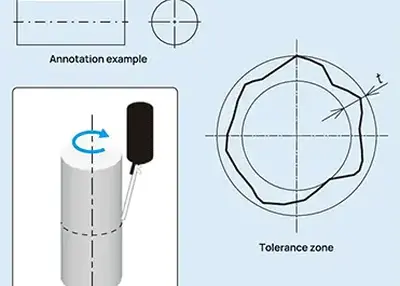 Unveiling Precision: Exploring Roundness, GD&T, and Advanced Measurement TechniquesNovember 21, 2023Are you ready to delve into the world of precision engineering? Let's embark on a journey to unravel the intricacies of roundness, its symbiotic relationship with GD&T, and the cutting-edge techniques defining its measurement standards.view
Unveiling Precision: Exploring Roundness, GD&T, and Advanced Measurement TechniquesNovember 21, 2023Are you ready to delve into the world of precision engineering? Let's embark on a journey to unravel the intricacies of roundness, its symbiotic relationship with GD&T, and the cutting-edge techniques defining its measurement standards.view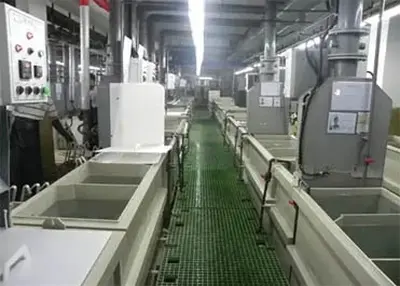 What Is a Heat Sink? 7 Tips for Choosing the Right Heat SinkSeptember 5, 2023Because of the increasing need for high-performance electronics, advanced devices with fast microprocessors and high transistor densities are being manufactured. This technical modification in such el...view
What Is a Heat Sink? 7 Tips for Choosing the Right Heat SinkSeptember 5, 2023Because of the increasing need for high-performance electronics, advanced devices with fast microprocessors and high transistor densities are being manufactured. This technical modification in such el...view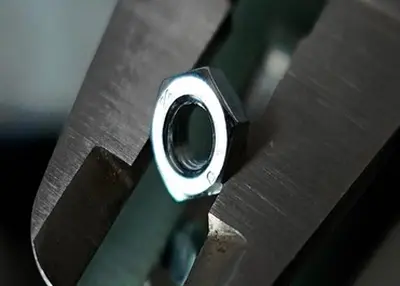 Precautions for Stamping Dies 1July 11, 2023Spring compression and calculationIn a set of stamping dies, more elastic materials need to be used, including springs of different specifications, urethane, nitrogen springs, etc., and different elas...view
Precautions for Stamping Dies 1July 11, 2023Spring compression and calculationIn a set of stamping dies, more elastic materials need to be used, including springs of different specifications, urethane, nitrogen springs, etc., and different elas...view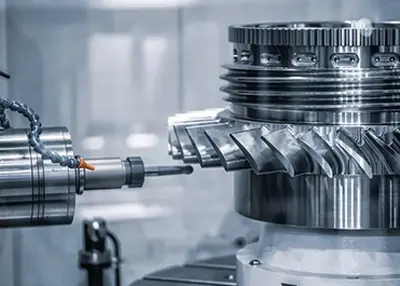 What Is a Shaft?October 30, 2023A shaft is basically a rotating part of any machine, having a circular cross-section, which is used to transmit power from one part to another or from a power generating machine to a power absorbing machine. To transmit power, one end of the shaft is connected to the power source and the other end is connected to the machine. Shafts can be solid or hollow as per requirement, hollow shafts help in reducing weight and provide advantages.view
What Is a Shaft?October 30, 2023A shaft is basically a rotating part of any machine, having a circular cross-section, which is used to transmit power from one part to another or from a power generating machine to a power absorbing machine. To transmit power, one end of the shaft is connected to the power source and the other end is connected to the machine. Shafts can be solid or hollow as per requirement, hollow shafts help in reducing weight and provide advantages.view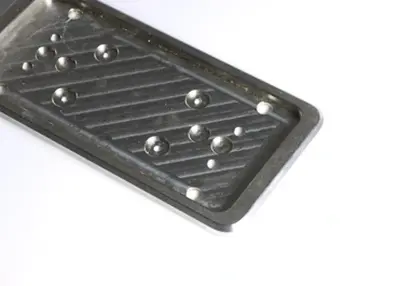 The Comprehensive Guide to Sheet Metal Thickness Gauge 2024January 22, 2024What is metal gauge thickness? This article explains everything you need to know about the use of sheet metal gauge thickness.view
The Comprehensive Guide to Sheet Metal Thickness Gauge 2024January 22, 2024What is metal gauge thickness? This article explains everything you need to know about the use of sheet metal gauge thickness.view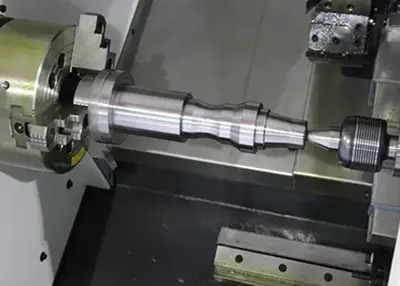 What is a CNC Lathe? Definitions, Uses, Types & BenefitsMarch 29, 2024This article provides a comprehensive introduction to CNC lathes, including their types, applications, benefits, and more. Read on and get detailed information.view
What is a CNC Lathe? Definitions, Uses, Types & BenefitsMarch 29, 2024This article provides a comprehensive introduction to CNC lathes, including their types, applications, benefits, and more. Read on and get detailed information.view